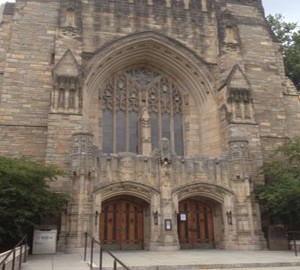Ivy League Admissions: What’s Luck Got to Do With It?
If you’re wondering what the answer is to the question posed in this post’s title, it’s … NOTHING!
Although luck, both good and bad, plays a large part in everyone’s destiny, gaining admission to an Ivy League institution is not the equivalent of a throw of the dice. Luck has little to do with it. Acceptance is the culmination of a long-term effort to establish the right credentials and to sustain high performance in academics and other relevant activities. This is the only way to achieve your educational goals if they entail an elite, highly selective college or university. If you intend to rely on luck, then perhaps you shouldn’t even bother to apply. No one knows this better than an IvySelect college admissions consultant, an expert who has successfully assisted many students through this arduous process.
At least one person would disagree with this point of view. Michael Kinsley, a Harvard College and Law School graduate and a Rhodes scholar, is a renowned journalist and commentator. He has been the editor of The New Republic and host of the public issues TV shows Firing Line and Crossfire. He was the start-up editor of Slate, the first major commercial e-zine. Among his current roles, Kinsley writes a monthly column for Vanity Fair. He’s nobody’s fool… but he’s not perfect either.
Despite his erudition, Mr. Kinsley mischaracterizes, in our opinion, the admissions process at our most elite institutions of higher learning. He wrote the following in his August column, titled, “Why White, Preppy Men Need an Affirmative-Action Reality Check”.
“Meanwhile, the number of slots at [highly selective] College X has stayed the same or increased only slightly. When you put it all together, it’s amazing that anyone bothers to apply to College X at all. This may be of doubtful consolation to [an applicant and his legacy parent], but it all really boils down to luck. Nobody ‘deserves’ a place at College X. The luck may be in your genes, in your parent’s checkbooks, in their parenting skills, or in the dubious meatloaf the dean of admissions had for dinner the night before your application was considered.”
Let’s take the “meatloaf” clause figuratively, as it was intended, and infer that Mr. Kinsley thinks that much of a decision to accept or reject depends on the mindset of the admissions officer who, through luck of the draw, reviews an application.
So, what is it about Kinsley’s take on the elite college admissions process that misses the mark? Let’s consider a few points in rebuttal:
- An application package is initially evaluated to assign a score called an Academic Index (AI). The AI involves automated process incorporating a formula that the admissions office considers most appropriate as an objective means of assessing the quantifiable elements of the application (i.e., GPA, SAT/ACT and other test scores, and class rank).
- Ivy League and other elite institutions receive far more applicants with very high AI scores than they can admit, so they must apply subjective measures to select the best applicants from this pool of excellent students. Although they tend to fit a pattern, these measures are unique for every institution. IvySelect tracks singularities in each school’s selection methodology that enable us to guide those targeting specific schools.
- The quality of essays is one of the aforementioned subjective means that colleges use to identify the best applicants. Based on a standard approach to evaluating essays, admissions officers within an Ivy League college tend to agree when they see the rare essay that is strong enough to advance the case for admission. To meet this standard, your writing should be original and grammatically flawless. Since writers benefit from a good editor, IvySelect will expertly assist you in shaping your essays. Equally important and often more problematical is the task of topic selection. IvySelect excels at brainstorming essays with you to find the most engaging topics for your essays, a process facilitated by having learned from you about your interests, talents, and goals.
- Another major subjective variable is extracurricular activities and, more specifically, the talents that you have developed over time through these activities. Kinsley says, “Still other factors—the college orchestra needing an oboe player—are complete wild cards.” He seems to think that the extent to which your well-developed talents may help you is a factor of what various programs within the college may be looking for at the time that your application is under review. Although colleges do utilize institutional priorities to identify certain needs, such as finding a quarterback or, yes, an oboe player, this isn’t the only way colleges approach these things. They seek diversity, not only demographically but also in people with a wide range of talents, skills, and interests. An IvySelect consultant assists you in presenting your best self to admissions officials. Part of this process is to work with you to identify and promote those talents that will appeal to them the most.
So, Mr. Kinsley, we wish you the best of luck for continued success in your illustrious career and, this rare misstep notwithstanding, we look forward to your future output.





